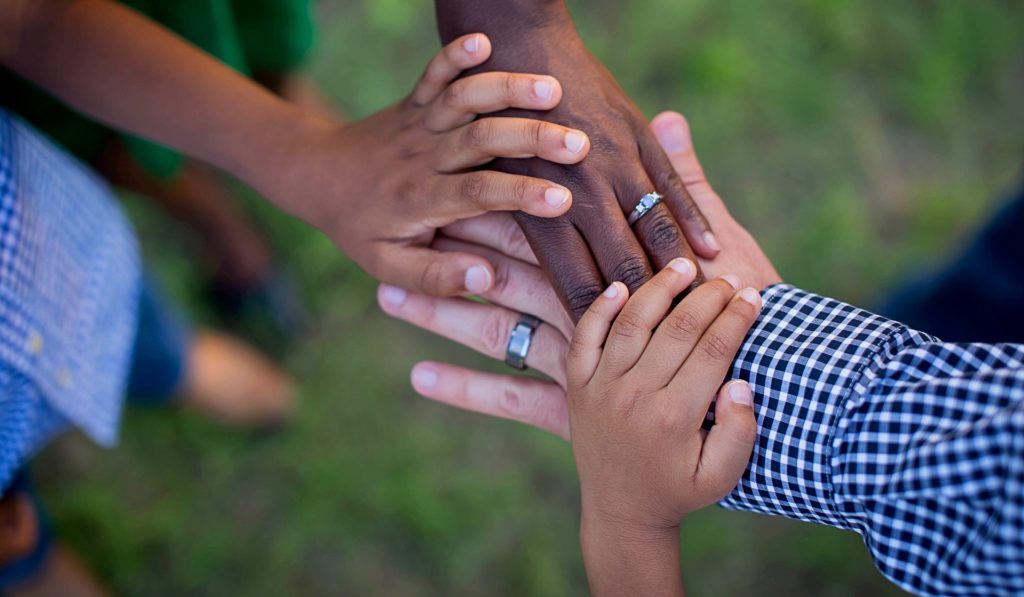Loving Like Jesus

Jesus said one mark of discipleship is loving others. He even called it a new commandment. “So now I am giving you a new commandment: Love each other. Just as I have loved you, you should love each other” (John 13:34 NLT).
What made this commandment new was not the substance (love people) but the model. In the Old Testament, the model was self-love: loving others as we love ourselves. Since we tend to be self-centered, self-absorbed, and narcissistic, applying self-love to others seems like a very high standard. However, Jesus modeled a much higher standard: love in the way He loves. Only the transforming power of the gospel can set us free to go beyond self-love to Christlike love.
In my last article I discussed four ways God expresses His iridescent love to us and how we are to respond to each one. Now let’s look at how to love others in those same ways. We are commanded to love others, but that doesn’t mean we love everyone in the same way.
1. Loving others with the creative, sustaining love of God
As God does, we offer this kind of love to everyone without condition. It is the kind of love Jesus referred to in the Sermon on the Mount when He said: “You have heard the law that says, ‘Love your neighbor’ and hate your enemy. But I say, love your enemies! Pray for those who persecute you! In that way, you will be acting as true children of your Father in heaven. For he gives his sunlight to both the evil and the good, and he sends rain on the just and the unjust alike” (Matthew 5:43-45 NLT).
We can demonstrate this form of love with acts of kindness toward people who seem undeserving, and giving when we will receive no visible reward. This expression of love shines brightest when the recipient is notably unworthy, as it radiates grace and mercy.
2. Loving others with individual redemptive love
The love of God through the sacrificial death of Christ on the cross is the ultimate example of redemptive love. So how do we express His redemptive love to others? Consider three ways as a starting point:
- As ambassadors sharing the gospel of reconciliation. We are to boldly model and tell people about God’s redemptive love in Christ.
- As forgivers of those who seek our forgiveness. Peter asked the critical question, “How many times should we forgive?” Jesus response gives several guidelines (Luke 17:3-4): First, if your brother sins, rebuke him; second, if he repents, forgive him; third, if he sins seven times in the day and turns to you (meaning repents), forgive him seven times. Another way to offer forgiveness is by not taking offense in the first place. Too often our “injustice detector” is way too sensitive. In the classic description of love, Paul tells us to intentionally choose not to be offended. “Love . . . is not provoked, does not take into account a wrong suffered” (1 Corinthians 13:4-5 NASB). We can offer redemptive love if we can learn to let perceived slights go.
- As peacemakers who bring harmony. Jesus said, “Blessed are the peacemakers, for they shall be called sons of God” (Matthew 5:9 NASB). People who love others this way seek opportunities to bring people together. They take a personal risk in order to reduce friction, bring perspective, and foster dialogue. Peacemakers lower the temperature in the room and radiate hope. They don’t suppress friction or ignore it, but their attitude and words of encouragement can provide an atmosphere that calms the storm.
3. Loving others with a covenant family love
John refers to the Father’s covenant family love when he says: “See how great a love the Father has bestowed on us, that we would be called children of God; and such we are” (1 John 3:1 NASB). God did not extend this love to humanity in general but to His family. It was the special kind of love He offered Israel as His chosen people. God did not love all nations or people equally. In the New Testament Jesus’ “new command” focused on the “one another.” John calls it loving the family of faith (1 John 4:11).
One example is Paul’s collection of money for saints in Jerusalem during a famine. The money was specifically for the saints who were suffering. The believers were not the only ones affected, but the collection from the churches in Asia Minor was designated to support the family of faith in Jerusalem.
This is not to say that love should be exclusive, but loving both our physical and spiritual family is a priority. In fact, Jesus says that those outside the family have a right to judge the authenticity of our faith by the way we treat each other.
4. Loving others with an intimate, relational love
Jesus called the eleven disciples His friends. This was a different relationship than what He had with the crowds. In today’s world the circle of people with whom we have this kind of love relationship is usually small.
Our mobile culture, sound-bite communication, and the fear of being authentic and transparent limit our deep connections. Further, Saint Augustine wrote that our souls are “opaque” due to our inherited sin nature. However, in heaven we will have the freedom to be totally transparent with God and one another since there will no longer be anything to hide, fear, or prove. What is exceptional now will one day be normal.
The relationship between Jonathan and David comes close to illustrating the closeness of this kind of authentic friendship love. We also see it in the relationship between Paul and Timothy as they traveled and served together (Philippians 2:19-20). This kind of love relationship only develops over time in combination with trust, respect, and many shared experiences. It will not develop without intentional effort.
John reminds us that loving others is a command, not an option. “This is My commandment: love each other in the same way I have loved you” (John 15:12 NLT). Jesus refracted His iridescent divine love into our lives so that we can reflect that same kind of love to others. Let’s love like Jesus!
Questions for Reflection:
- How do you respond to the idea that we are to love everybody but not all in the same way?
- What might limit your ability to love others with a personal, intimate love? Why not talk about it with God, and perhaps with a trusted friend also?
About the Author


